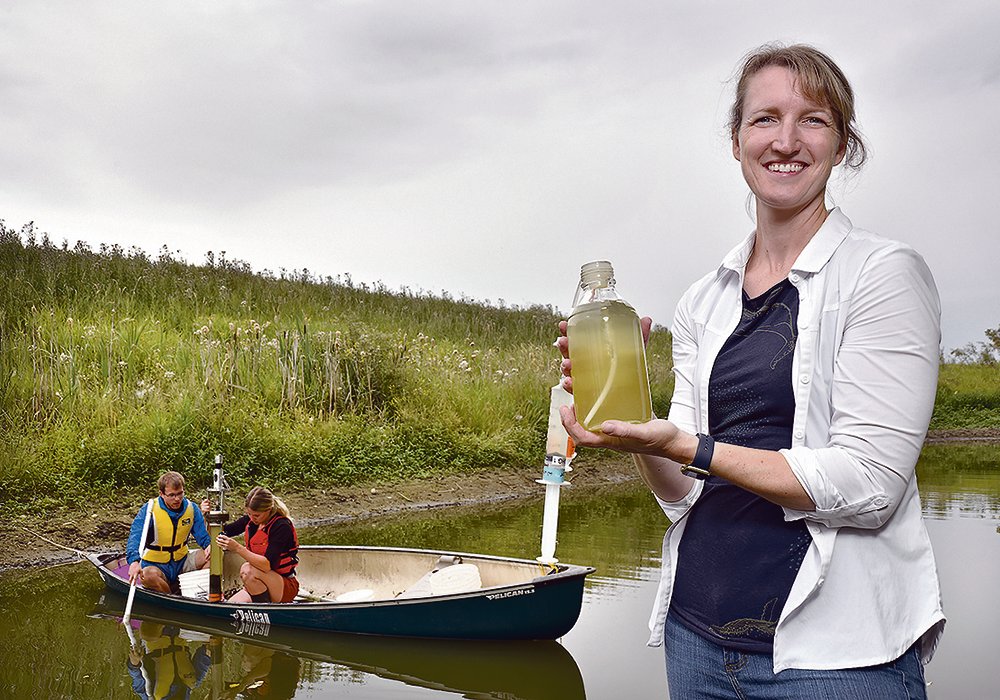Sask. research monitors sulfate levels in dugouts

University of Regina researcher Kerri Finlay has received $279,125 in grant money from Saskatchewan’s Agriculture Development Fund for research into sulfate in dugouts.
Finlay received the grant in January, and has started preliminary research with her team by sampling 30 different dugouts across Saskatchewan and monitoring their sulfate levels.
“We found that there are a lot of things of concern but sulfate was very often quite problematic,” Finlay said. “I think 20 percent of dugouts that we sampled had sulfate levels that were above the recommended limit.”
Water issues such as algae are easier to predict because they depend on nutrients, weather and water depth. However, it is not yet known why sulfate becomes an issue in these dugouts.
“We couldn’t find anything that correlated with the sulfate,” she said. “Not only was it quite often a problem, we also couldn’t find the things that we could target to make it better.”
Consuming too many sulfates can be problematic for cattle because it decreases the amount of minerals in the animal’s body, such as copper, iron and zinc. This can cause a decrease in average daily gain and feed efficiency and increase the risk of polio.
Finlay plans to test mitigation options in the coming years using two different methods: dugout cleaning and plants.
“Dugout cleaning is pretty much dredging it, so digging it out and letting it refill and seeing if that helps with the sulfate levels.
“We’re also working with someone who is going to look at some riparian plants and some floating plants and see if we can get some plants in there that might pull out some of the sulfate and get the levels back to normal.”
The grant is for four years. This year is for preliminary research, and the remaining three years will be used to put mitigation efforts to the test.
“I’m guessing we’ll have a nice idea by the end of next year whether some of those are working, but we would want a couple of years after that to really follow what’s going on,” Finlay said.
Source: producer.com

